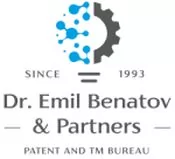Registering your brand as a trademark provides you with valuable legal protection that prohibits other persons from using an identical or similar mark in relation with your goods and services. This is a powerful tool against imitators and counterfeit products and can be essential to establishing your brand on the market and the success of your business.
How does this protection work in practice in Bulgaria? What do you do when you find someone who is infringing your trademark? Below is an overview of the available trademark enforcement options available to holders of trademarks valid in Bulgaria – Bulgarian Trademarks, EUTMs and international registrations designating either Bulgaria or the EU as a protected territory.
- Preventative effect
- All trademark filings and registrations are published in official registers (national, European or international). Everybody who sees your registration will be aware that your trademark benefits from legal protections and any infringement can lead to serious consequences, including the ones listed below.
- More power in out of court dispute resolution
- In many cases, even the sending of a letter warning of a lawsuit or other measures, can be enough to convince an infringer to stop their illegal activities.
- Customs control against counterfeits
- As a trade mark owner, you are able to notify national and European customs authorities of your registration. After that, they will automatically monitor for and arrest counterfeit goods at the border. Such goods can be destroyed.
- Preventing the registration of infringing trademarks
- If there is an application for a trademark which might potentially infringe on yours, you can initiate opposition proceedings before the Bulgarian Patent Office. If your opposition is upheld, the trademark will not be registered.
- You can take advantage of the Trademark monitoring service, which will seek to identify problematic new applications and give you an opportunity to file opposition proceedings within the proper deadlines.
- Cancellation of an infringing trademark.
- If the infringer's trademark is registered, you can file a request for its cancellation. If the Bulgarian Patent Office upholds the request, the trademark will be cancelled, as if it had never been registered.
- Civil lawsuit against the infringer.
- You can file a lawsuit against the infringer in civil court. Should you win, the court can order for the infringement to be stopped, and for you to be awarded damages, including the proceeds of the infringement, and legal costs.
- While civil lawsuits can sometimes be lengthy and expensive affairs, they are also the best way for you to obtain compensation for any losses incurred due to the infringement.
- Administrative penalties
- If a report is made, or on their own initiative, the Bulgarian authorities can investigate trademark infringement and carry out sting operations in commercial establishments suspected of selling counterfeit goods. If an infringement is identified, the goods are confiscated by the state and destroyed, and the infringer can be fined. This can be a useful tool to fight infringement, as the authorities work independently and bear their own costs.
- Proceedings in the Commission for Protection of Competition
- If an infringement is reported to the Commission, it can open proceedings for unfair competition, where having a registered trademark will give you an advantage.
- The Commission can impose significant fines of up to 10% of the infringer's turnover (although it's usually a lower percentage). These sanctions are in favour of the state, i.e. they will not help you recover any losses incurred, but they are still a powerful tool against infringers and a deterrent.
- Criminal liability for infringers
- Trademark infringement can also be prosecuted as a crime in Bulgaria and if found guilty, a person can be convicted to up to 5 years in prison for a first offence, and between 5 and 8 years for a repeat offence.
- Such criminal cases are not very common and it is up to the police and prosecutor's office to decide if a criminal investigation will be conducted and a suspect is charged. Nevertheless, this cannot be disregarded as an option.
This is only a general overview of the varying avenues available to a trademark holder looking to enforce their rights. Each case has its own individual circumstances and merits its own individual analysis.
The content of this article is intended to provide a general guide to the subject matter. Specialist advice should be sought about your specific circumstances.
